
Mao's Golden Mangoes and the Cultural Revolution Lecture Series
http://www.chinainstitute.org/gallery/exhibition-related-programs/
Around half a century ago during the Cultural Revolution (1966 – 1976), China was in a political “mango-fever.” In 1968, after receiving a gift of mangoes from the visiting Pakistani foreign minister, Mao Zedong sent the fruit to the “WorkerPeasant Mao Zedong Thought Propaganda Teams.” This coincided with a turning point in the Cultural Revolution, from students leading to workers and peasants leading. Mangoes, an unfamiliar fruit at that time in China, became a temporary political symbol of Chairman Mao’s benevolence and love for the people. Illustrations and photos of mangoes appeared in publications, paintings, posters and badges, as well as on everyday objects such as mirrors, quilt covers and enamelware. Wax mango models were displayed in glass boxes to express respect for Mao, along with the circumstances of the gift printed in red on the glass. By showcasing over 80 mango-related objects, Mao’s Golden Mangoes and the Cultural Revolution explores the interaction of material culture and politics during this period. Zhijian Qian, Professor, NYC College of Technology. Wednesday, April 1, 2015, 6:30-8PM @ China Institute, 125 East 65th St. Fragmentary Memory: Visual Reflection of the Cultural Revolution in Works of Artists Born in the 1960s. Artists of the 1960s generation were at most teenagers when the Cultural Revolution ended in 1976. Very few of them really participated in the movement. Yet memories of those disastrous years, although vague and fragmentary, remain with them until today. Visual reflection of the Revolution in recent works by a number of contemporary Chinese artists indicates a retrospective approach to reevaluating the impact of a tumultuous political period on Chinese adolescents from the 1960s to the 1970s. ** Attendees will receive a complimentary copy of China Institute's exhibition catalog, "Humanism in China: A Contemporary Record of Photography," which includes essays on documentary photography before, during, and after the Cultural Revolution** Carma Hinton, Professor, George Mason University, Wednesday, April 8, 2015, 6:30-8PM @ China Institute, 125 East 65th St. The Posthumous Life of Chairman Mao. The deification of powerful people has a long history in China. The cult surrounding Mao Zedong (1893-1976) grew during his lifetime and led to his deification after his death. This lecture explores the ways that the cult of Mao echoes traditions deeply rooted in Chinese culture. Dorothy Ko, Professor, Barnard College and Columbia University. Wednesday, April 15, 2015, 6:30-8PM @ China Institute, 125 East 65th St. Fashion and Gender in Mao's China. Was the Maoist revolution anti-fashion? From the eyes of the women who lived through the tumultuous decades, the answer was not so simple. Come see how women's dress was in fact more colorful and changeable than it may appear in the propaganda posters. Jane DeBevoise, Chair, Asia Art Archive, Hong Kong and New York Wednesday, April 22, 2015, 6:30-8PM @ China Institute, 125 East 65th St. Art and the Cultural Revolution: A Conversation with Zheng Shengtian. Born in 1938 and now Managing Editor of Yishu magazine, Zheng Shengtian is an artist, writer and independent curator. Prior to his departure from China in 1990, he worked at Zhejiang Academy of Art in Hangzhou (now the China Art Academy) as a professor and chair of the Oil Painting Department. This conversation will focus on Professor Zheng’s experience during the Cultural Revolution, its impact on his education, art practice, and teaching responsibilities, including his work with artists who came to prominence in the 1980s and beyond. All lectures are $10 for CI members/$15 for non-members and FREE to Friends of the Gallery Members. Register with the link above. IMAGE: Poster, 1968, color printing on paper, 53 x 68.3 cm, courtesy of Museum Rietberg Zürich

100x100_n.jpg)
100x100_c.jpg)
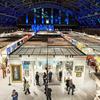

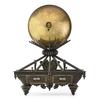




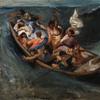

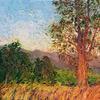
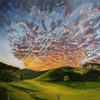
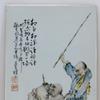

100x100_c.jpg)